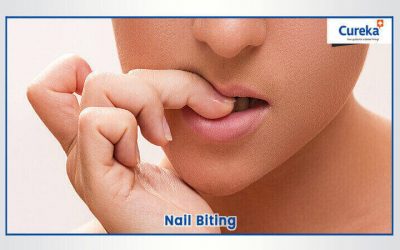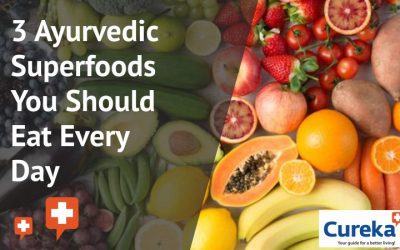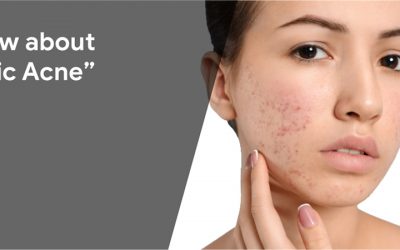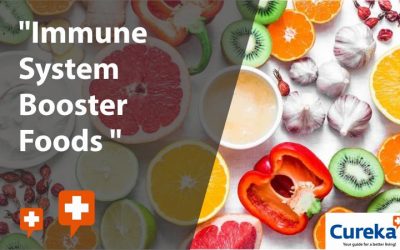Are Baby Shampoos Really Sulfate-Free? What Else Should I Avoid in Baby Shampoo?
Medically Reviewed By:
Dr. Hema Sathish M.B.B.S., D.D(UK)
Dermatologist, Founder of Cureka
There are several baby shampoos on the market right now, and you might have a hard time trying to find a good fit. We all do. Many parents assume that baby shampoos are automatically gentle and free from harmful chemicals, but is that really the case? But once you read through this blog, it should give you a better idea of what’s out there and how you can select something that’s right for your baby.
Why Use Baby Shampoo?
Babies and infants are susceptible to scalp acne and cradle cap mainly due to their sensitive skin and the use of some mainstream commercial products with harmful ingredients. Furthermore, babies’ delicate skin has not yet fully developed the natural defense system to adequately protect them from harsh components commonly found in most personal care products, especially when it comes to bath and body products like newborn shampoo and body washes.
What Ingredients Are Harmful in Baby Shampoos?
Here are some common harmful ingredients to avoid when selecting a newborn shampoo:
- Formaldehydes
- Parfum/Fragrance
- Sodium Lauryl Sulfate (SLS)
- Parabens
These ingredients can cause irritation and allergic reactions, and some even have links to more serious health concerns. Babies’ skin is very delicate, and prolonged exposure to these chemicals could affect their overall well-being.
Why Look at Ingredients in Baby Shampoo?
It’s known that some substances applied to the skin may be absorbed and enter the bloodstream. Research has shown that, depending on the chemical’s nature, as much as 60% of what is applied to the skin may be absorbed. This is why it’s crucial to choose a sulfate-free and natural infant shampoo.
Even products labeled “natural” need only 1% natural ingredients to carry that label. As a result, many baby shampoos contain a high number of chemicals that can irritate your child’s sensitive skin and potentially cause allergic reactions. Choosing the wrong product can lead to issues like eczema and other skin conditions that are becoming increasingly common among young children.
Preservatives in Newborn Shampoo and Baby Shampoos
Artificial preservatives are a significant cause of irritation and allergic reactions. Some of them are known to release small amounts of formaldehyde, a known irritant and carcinogen. Ingredients like 2-bromo-2 nitropropane-1,3-diol, diazolidinyl urea, DMDM hydantoin, and quaternium-15 should be avoided.
Additionally, preservatives like parabens and Methylchloroisothiazolinone have been linked to various health issues and skin irritation. When choosing a newborn shampoo, it’s essential to be aware of these ingredients to protect your baby’s health.
Dimethicone in Baby Products
Dimethicone is often found in baby shampoos and lotions. While it creates a moisture barrier, other natural ingredients can perform this function while providing additional benefits. Dimethicone can be replaced with plant oils and waxes that are safer for your baby’s skin.
Fragrances in Infant Shampoos
Fragrances can be a major cause of allergies and irritation. If you see “parfum” or “fragrance” in the ingredient list, you may be exposing your child to synthetic chemicals. Even natural scents can sometimes cause irritation, but they are less likely to do so than artificial perfumes. Opt for fragrance-free products or those that use mild essential oils.
What Is a Non-Toxic Baby Shampoo?
A non-toxic baby shampoo is a gentle and safe cleansing product formulated specifically for infants. It’s free from harmful chemicals like sulfates, parabens, and phthalates, which can cause skin irritation or other health concerns. When selecting a sulfate-free baby shampoo, look for natural ingredients such as organic coconut oil, jojoba oil, or aloe vera. These ingredients nourish and protect your baby’s sensitive skin while avoiding harmful synthetic additives. Additionally, choosing a pH-balanced shampoo helps maintain the natural balance of your baby’s scalp, ensuring it remains healthy and less prone to irritation.
Why Sulfate-Free Baby Shampoo Is the Way to Go
Sulfates like Sodium Lauryl Sulfate (SLS) and Sodium Laureth Sulfate (SLES) are commonly found in shampoos, including some infant shampoos. They create the bubbly lather many of us associate with “clean,” but they are known to strip away the skin’s natural oils, causing dryness and irritation.
For babies, sulfate-free shampoos are especially important. Sulfates can be too harsh for delicate skin, leading to issues like dryness, itching, and even allergic reactions. In some cases, sulfates are also linked to the formation of harmful substances like 1,4-dioxane, a potential carcinogen.
By choosing a sulfate-free baby shampoo, you avoid these risks, giving your baby a gentler, safer product that still effectively cleanses their skin and scalp.
What to Look for in a Newborn Shampoo
When choosing a newborn shampoo, keep the following factors in mind:
- Gentle Formulation: Look for products labeled “gentle” or “mild.”
- Natural Ingredients: Opt for shampoos with natural oils like organic coconut oil or aloe vera.
- Hypoallergenic: Choose products that are hypoallergenic to avoid skin irritation.
- Tear-Free: Pick a shampoo labeled “tear-free” for a worry-free bath time.
- Free from Harmful Chemicals: Ensure the shampoo is sulfate-free, paraben-free, and free from synthetic fragrances.
Conclusion
When it comes to choosing the right baby shampoo, it’s important to look beyond the labels and understand what ingredients are in the product. Not all shampoos marketed for babies are truly gentle or free of harmful chemicals. By avoiding ingredients like sulfates, parabens, synthetic fragrances, and artificial preservatives, you can significantly reduce the risk of irritation or allergic reactions on your baby’s delicate skin. Opting for a sulfate-free baby shampoo with natural, nourishing ingredients like organic coconut oil or aloe vera ensures that your baby’s scalp stays healthy and protected. Ultimately, knowing what to avoid and what to embrace will help you make an informed decision, giving your child the safest, most effective care possible.
FAQ’s
1. Are all baby shampoos really sulfate‑free?
No, not every baby shampoo is sulfate‑free; many still use sulfates like SLS or SLES to create foam, which can strip natural oils and irritate delicate scalps and eyes. Parents who prefer gentler cleansing should look for labels that clearly state “sulfate‑free” and list mild surfactants instead of these stronger detergents.
2. Which ingredients should I avoid in baby shampoo?
Experts recommend avoiding sulfates (SLS/SLES), parabens, synthetic fragrances, phthalates, formaldehyde‑releasing preservatives, and harsh dyes in baby hair products. These chemicals can disrupt the skin barrier, trigger allergies or eczema, and in some cases are linked to longer‑term hormonal or health concerns.
3. What ingredients are safer choices in a gentle baby shampoo?
Gentle formulas usually rely on mild, plant‑derived surfactants and soothing ingredients like aloe vera, chamomile, calendula, oat extract, and natural oils. These help cleanse without stripping moisture and are often combined with pH‑balanced, hypoallergenic bases that are tested for sensitive skin.
4. How can I tell if a baby shampoo is suitable for sensitive or eczema‑prone skin?
Look for terms such as “hypoallergenic,” “fragrance‑free” or “mildly fragranced,” “dermatologist‑tested,” and “pH‑balanced” on the label, plus short ingredient lists without harsh chemicals. For babies with eczema or very reactive skin, patch‑test a small amount on the forearm and consult a pediatrician or dermatologist if irritation appears.
5. How often should I wash my baby’s hair to avoid dryness or irritation?
Most guidance suggests shampooing a baby’s hair only a few times per week, unless there is cradle cap or heavy sweating, because daily washing can dry out the scalp. On non‑wash days, a gentle water rinse or soft brushing is usually enough to keep the scalp clean while protecting natural oils.
References :
- Baby care products: possible sources of infant phthalate exposure – 2008 Feb – https://pubmed.ncbi.nlm.nih.gov/18245401/
- Skin safety and health prevention: an overview of chemicals in cosmetic products – 2019 Mar – https://www.ncbi.nlm.nih.gov/pmc/articles/PMC6477564/
- Soaps and shampoos in pediatric practice – 1987, Nov – https://pubmed.ncbi.nlm.nih.gov/2959903/











